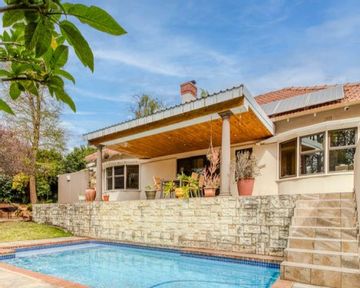Johannesburg, the most affordable metro for property buyers and tenants
Johannesburg is the most affordable metro in the country whether you want to buy or rent, according to agents from the Seeff Property Group.
Lightstone data shows that the average transaction price for the metro is around R1.2 million. This is below the national average of R1.3 million. Comparatively, the national average for Pretoria/Tshwane is slightly above this and stands at R1.4 million for Durban/eThekwini based on data for this year.
Greater Johannesburg continues to see the largest influx of people migrating to the big cities in search of economic opportunities, and they are still finding good value. Affordability is a big feature of the Johannesburg property market. The data shows that almost 77% of this year’s transactions have been below the R1.5 million price mark with almost half (47%) of these below R700,000.
Only 4.82% of transactions are valued at R3 million and over. The average price for first-time buyer homes is around R700,000 to R800,000, while the average price for luxury homes is R4 million according to the data.
Rochelle Holland, manager for Seeff Johannesburg North-West, says that while buyers in the mid to lower price categories are more sensitive to the interest rate hikes, the upper-end market in estates such as Eagle Canyon has seen excellent sales of luxury homes that have sold for upwards of R6 million.
She says it also helps that sellers are now more receptive to offers which reflects a shift in acceptance that the market is still more favourable for buyers. They are still seeing a good mix of buyers, including investors and cash buyers who are not reliant on mortgages.
Luxury homes in the R4.9 million to R6.5 million range are the most in demand in the Eagle Canyon Estate where Seeff has clinched sales of up to R8 million over the last year. Also popular with buyers are clusters, priced from R3 million, and sectional titles which are more affordably priced from R1.7 million for an upstairs unit, and R2.2 million for a ground floor unit with a garden and garages.
Neighbouring suburbs such as Honeydew, Wilgeheuwel, Radiokop, and Allens Nek offer even better value for buyers, she says. Average family houses in Radiokop and Wilgeheuwel are selling from around R1.5 million, larger townhouses from R1.1 million, and small units from just R600,000.
The area is an excellent investment and popular for its affordable rentals. Radiokop, Wilgeheuwel, and Honeydew for example boast an average rent of R7,350 per month with properties between R8,000 to R10,000 renting out quite quickly.
Sectional titles in Eagle Canyon between R18,000 to R22,000 per month are also popular. Houses in the estate are renting out for R25 000 to R30 000 with luxury homes ranging up to R45,000 per month based on Seeff rentals achieved.
Rental prices have remained fairly flat, and tenants tend to renew their leases when they are placed in well-priced properties, rather than moving around.
The best performing suburbs in South Africa
From the steadfast performance of Bryanston to the emerging appeal of Sibaya Coastal Precinct, the current top five suburbs in South Africa highlight the diverse property landscape and its buyers.
source: Lightstone
In addition to the performance of specific suburbs, the overall health of South Africa's residential property market is a key indicator of its vitality and resilience. As of February 2024, the market's stock value stands at just over R6.8 trillion, reflecting the significant value inherent in the country's real estate sector.
One interesting trend is the distribution of stock and value across different types of residential properties. Estates, for example, account for 6.6% of the total stock but contribute 18.1% of the market's total value. This disparity underscores the premium placed on estate living, likely due to the enhanced security, amenities, and lifestyle offerings typically associated with these developments.
Similarly, Sectional Title properties, while representing 12.9% of the stock, contribute 15.7% of the market's total value. This segment includes apartments and townhouses, which are popular among urban dwellers seeking convenience and community living.
Despite being the largest residential property sector by stock at 80.5%, Freehold properties contribute just 66.3% of the market's total value. This discrepancy suggests that while Freehold properties are more abundant, their overall value contribution is lower compared to other types of properties. This could be due to factors such as location, size, and amenities, which greatly influence property values.

